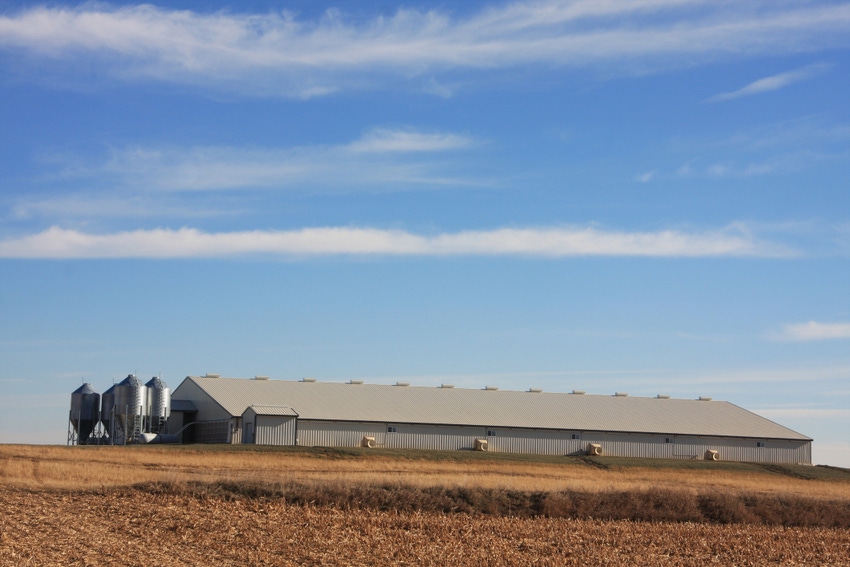Compeer Financial awards grants to 22 rural schools
Over $150,000 awarded to schools that developed exemplary innovative programs during the pandemic.
July 26, 2021

The COVID-19 pandemic posed a variety of challenges to rural schools and their communities. Many schools tackled those challenges head on with creativity, innovation and commitment. Compeer Financial, a member-owned Farm Credit cooperative based in the Upper Midwest, partnered with the Rural Schools Collaborative to award $150,211 in Rural Schools Innovation Grants to 22 rural schools that developed exemplary innovative programs during the pandemic, directly impacting 12,888 students.
The Rural Schools Innovation Grants allowed schools to share what they started doing during the pandemic, and how it worked. The funding will continue to advance these vital programs so more students can benefit from outside-the-box thinking.
“Even when faced with the unprecedented hardships of COVID-19, rural schools and communities persevered and turned their innovative ideas into reality,” said John Monson, chief mission and marketing officer at Compeer Financial. “By awarding the top innovations with funding, we’re ensuring longevity for these programs and promoting new ways of thinking.”
Grants of up to $10,000 per school district were available through this one-time program. Rural public schools in Compeer Financial’s 144-county territory in parts of Illinois, Minnesota and Wisconsin were eligible to apply.
The schools receiving grants include:
Illinois
Bright Futures Preschool, Galesburg, Ill.: adding an outdoor classroom space at the school
Central Intermediate, Monmouth, Ill.: engaging students in live and recorded broadcasting, live research, reporting and documentation in the community with place-based learning
Farmington Central CUSD #265, Farmington, Ill.: adding seating and recycling stations to outdoor classroom
Liberty CUSD #2, Liberty, Ill.: creating an AV program to educate students in basics and in-depth studies in audio and video recording, photography, podcasting, broadcasting and the art of sound
West Prairie Jr/Sr High School, Sciota, Ill.: nurturing the school culture where students feel connected and valued. Closing the learning gap created by school closing and online learning by focusing on students’ mental well-being first
Minnesota
Eagle View Elementary School, Pequot Lakes, Minn.: adding an outdoor classroom space at the school
Kasson-Mantorville Community Education, Kasson, Minn.: bringing tutors and academic coaches to one-on-one or small groups of students
McGregor K-12, McGregor, Minn.: supporting the creation and distribution of pollinator science kits for families to develop awareness and skills to protect, preserve and promote plants and insects that contribute to pollination and a sustainable and healthier environment
Minnesota New Country School, Henderson, Minn.: adding a mobile kitchen unit, to help students learn healthy ways of preparing and serving the food they have grown in the school’s hydroponic system
Monticello Public Schools, Monticello, Minn.: adding more nature-based education units, adapting traditional classroom lessons to natural learning with the great outdoors as the classroom
Pine Island High School, Pine Island, Minn.: expanding eco-literacy at schools by offering more field kits. Kits include field supplies like clip-on phone microscopes, seed growing materials and other hands-on learning materials
Spring Grove Public Schools, Spring Grove, Minn.: expanding outdoor classroom to a farm-school partnership, working with a local farmer to add a pig as a learning tool
Wisconsin
Ellsworth Elementary School, Ellsworth, Wis.: adding warm, waterproof gear for students to wear while engaged in outdoor learning year round
Iowa-Grant, Livingston, Wis.: constructing an outdoor space for learning
Lodi High School, Lodi, Wis.: developing and purchasing equipment for new publication class to produce newscasts, announcements and editorials
Luck High School, Luck, Wis.: supporting school and FFA program to purchase food from local farmers and grow in the school green house
Mellen School, Mellen, Wis.: adding an outdoor structure, tables and benches for outdoor learning
Mineral Point High School, Mineral Point, Wis.: expand opportunities to better meet the production and programming needs of students, staff and community; and adding a class focused on multi-media productions
North Crawford Elementary, Soldiers Grove, Wis.: providing books for students of all grade levels to keep at home
Potosi Elementary School, Potosi, Wis.: creating permanent sensory paths on playground and adding a sensory path in the hallway. These paths allow students to move, which helps them focus on learning
School District of Turtle Lake, Turtle Lake, Wis.: adding a pavilion and tables to school forest
Wauzeka-Steuben Schools, Wauzeka, Wis.: providing books for students of all grade levels to keep at home
The Rural Schools Collaborative is a national nonprofit launched in 2015 to build sustainable rural communities. With a keen focus on place, teachers, and philanthropy, RSC's mission is realized through four signature efforts: The Place Network, Rural Teacher Corps, Grants in Place, and Impact Philanthropy. RSC is powered by a small, dedicated staff and board, as well as Regional Hub Partnerships.
You May Also Like



